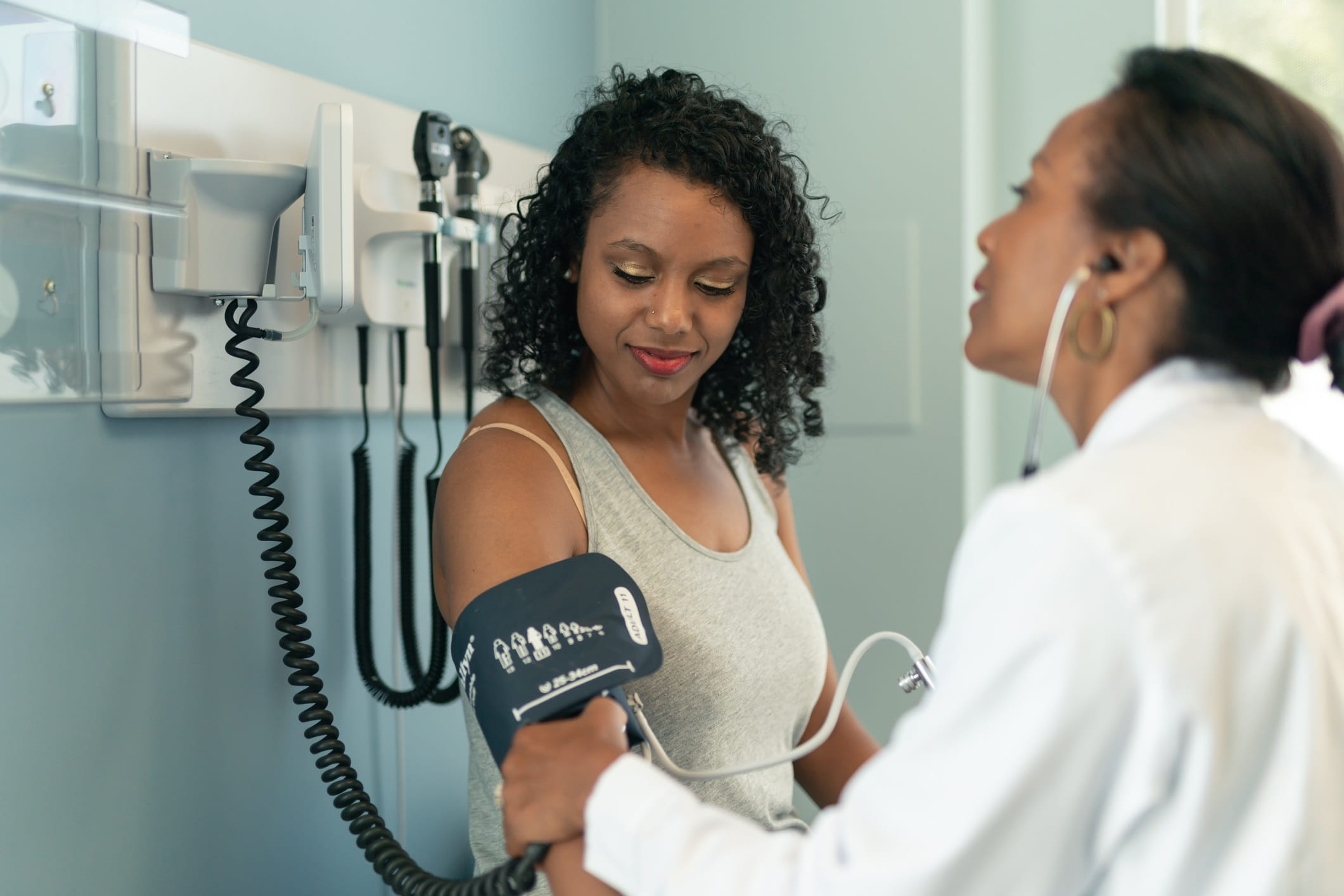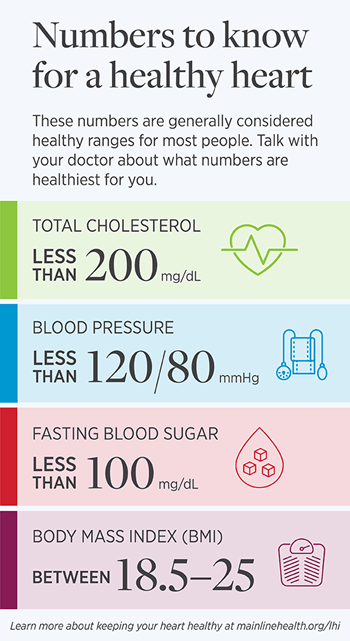Essential cardiac tests

Heart disease remains the leading cause of death among women and men, claiming the lives of one in every five individuals. And because heart disease can affect adults of every age, race and socioeconomic class, screenings are an important part of prevention.
Standard cardiovascular screening tests
Managing heart disease starts with ‘knowing your numbers.' This phrase, which you may have heard of before, refers to knowing and understanding some key heart health indicators like blood pressure, cholesterol, triglycerides, blood sugar, body weight and body mass index (BMI).
"Your health care provider checks most of these numbers during every visit because — besides being important determinants of your heart health — they can also provide a snapshot of your overall health. Changes in your blood sugar, for example, may be an indicator of diabetes," explains Donald V Ferrari, MD, FACC, a Lankenau Heart Institute cardiologist.

- Blood pressure: Every visit with your health care provider
- Cholesterol: Every five years after age 18
- Triglycerides: Every five years after age 18
- Blood sugar: Blood sugar testing is based on diabetes risk. Your health care provider may recommend testing if you are overweight; have a history of diabetes, high blood pressure of high cholesterol; or are African American, Hispanic, American Indian or Asian American.
- Body weight: Every visit with your health care provider
- BMI: All you need to calculate your BMI is your height and weight. Talk to your health care provider about helping you calculate your BMI and if it puts you at an increased risk for health issues.
Keeping track of these numbers can help you develop a baseline for your health. Make sure you're keeping annual check-up appointments with your primary care provider to track any changes that may occur from year to year.
Additional cardiovascular screening tests for adults at high-risk
There are standard and preventive cardiovascular screening tests available that can help you understand your risk for heart disease. The best way to make sure you're getting the screening and tests you need is to talk to your health care provider about your personal and family history so they can advise what tests are best for you.
Screening tests your doctor may recommend can include:
Coronary artery calcium score
A coronary artery calcium score is a screening test that can be used to detect atherosclerosis, a buildup of fatty deposits that can clog and harden your arteries, restrict blood flow to the heart and reduce your risk for heart disease.
A coronary artery calcium screening is recommended for women who have risk factors for heart disease but are not experiencing any heart disease symptoms.
Coronary artery calcium (CAC) screening
A screening that can be used to detect atherosclerosis, a buildup of fatty deposits that can clog and harden your arteries, restrict blood flow to the heart and reduce your risk for heart disease.
A CAC screening is recommended for women who have risk factors for heart disease but are not experiencing any heart disease symptoms.
Coronary computed tomography angiography (CTA) testing
A coronary CTA uses an injectable dye to "light up" blood vessels that may be blocked or narrowed as a result of atherosclerosis. While a CTA doesn't always provide an accurate indication of heart disease, it's appropriate for evaluating symptoms like chest pain, nausea or fatigue. A CTA can help determine if these symptoms are a result of a cardiac issue or something else.
Electrocardiogram (EKG)
By recording the electrical activity of the heart, an EKG can check your heart rhythm and blood flow, as well as detect any changes in the size of your heart muscle or electrolyte abnormalities. Factors like these can be early indicators of heart disease. EKG tests are non-invasive and can be offered to anyone, even healthy people, but they can be especially helpful to detect cardiac risk and abnormalities among men and women who have a history of heart disease.
Cardiac genetic testing
Many cardiac disorders are inherited. Cardiovascular genetic testing may be considered if you have a family or personal history of unexplained cardiac arrest or risk of sudden cardiac death, unexplained accidents, seizures or syncope, cardiomyopathy or arrhythmia and more.
HeartFlow®️
This noninvasive, 3D arterial imaging technology is used in addition to your CT scan to create a 3D image of your coronary arteries. HeartFlow technology can help prevent you from having invasive or unnecessary tests and creates a personalized, full-color 3D map of your heart arteries. This will help your doctor determine the most appropriate treatment option for you.
Next steps:
Make an appointment with Donald V Ferrari, MD, FACC
Learn more about Main Line Health's heart specialists
Deciding if a coronary calcium screening is right for you
 Content you want, delivered to your inbox
Content you want, delivered to your inbox
Want to get the latest health and wellness articles delivered right to your inbox?
Subscribe to the Well Ahead Newsletter.
